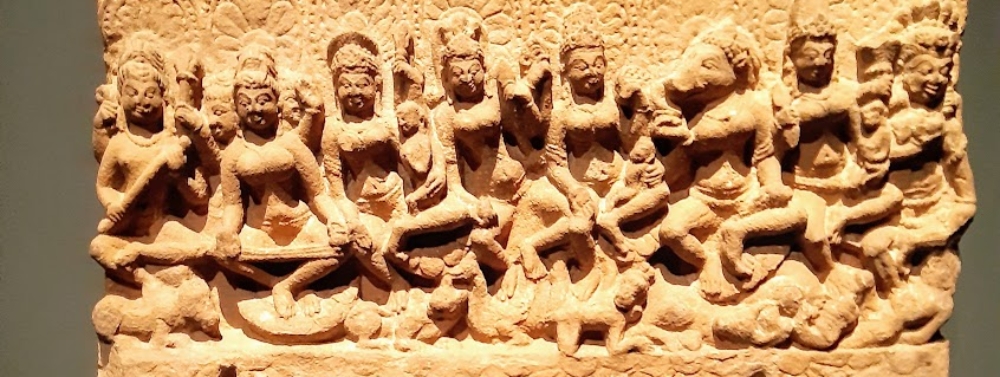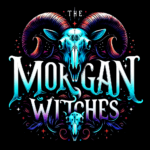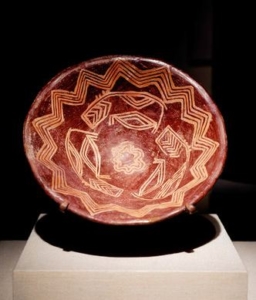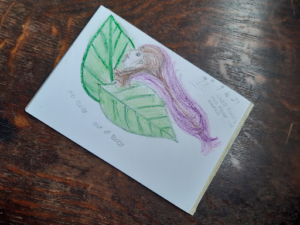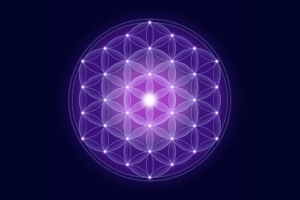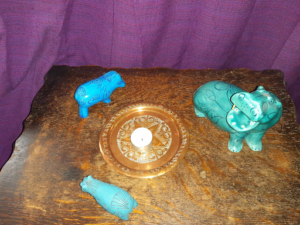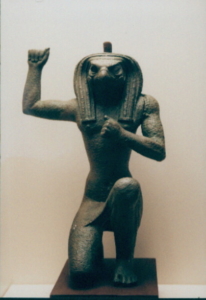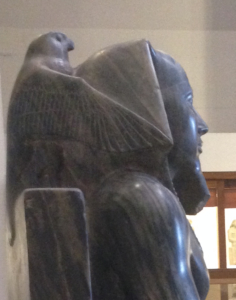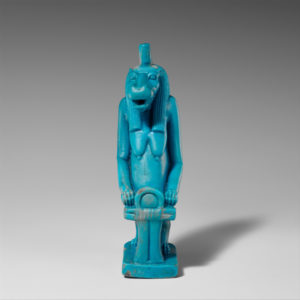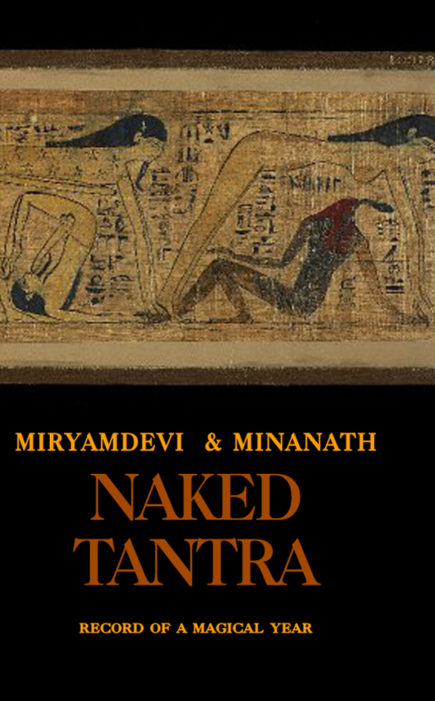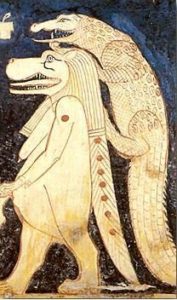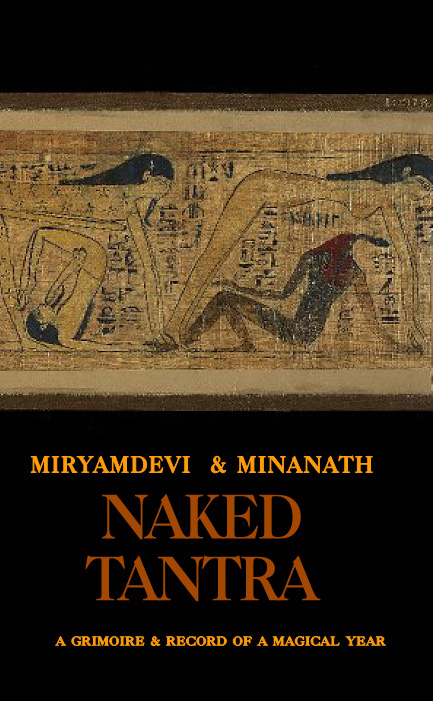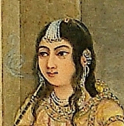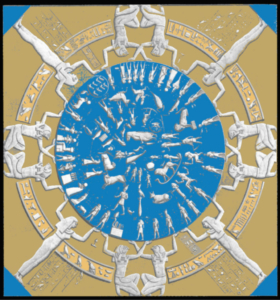
“Explore the fusion of Hindu Tantrik and Khemetic perspectives in ‘Tankhem,’ a transformative course in ancient Egyptian magic. Tailored for witches, natural magicians, pagans, and tantriks alike, this course offers a unique approach to unravelling the mysteries of ancient Egypt’s magical heritage. Dive into the depths of this ancient Egyptian magic course and unlock the secrets of the ages.”
Course Aims:
Embark on a journey to unlock the mysteries of Ancient Egyptian Magical Religion through an in-depth exploration of its reconstructed Ritual Year, which consists of 12 “god-bearing” months.
Course Leader:
Guided by Mogg Morgan, a distinguished Companion of Seth and Knight of Shamballa, renowned author of over a dozen books on magick. Immerse yourself in his wealth of knowledge and expertise. Additionally, delve into his insightful videos on YouTube @EgyptianMagick.
Objectives:
- Develop a comprehensive understanding of Egyptian culture, delving deep into its magickal practices from foundational principles to advanced techniques.
- Attune to the rhythms of ancient cosmic and life cycles, fostering a heightened sensitivity to the interconnectedness of the universe.
- Acquire practical skills essential for embarking on the journey toward immortality and spiritual resurgence.
Outline:
Twelve modules including video lecture.
Module 1: MesoRe – Ra and the New Year
MesoRe – Ra and the New Year and the Golden Dawn. Who are you? There were two major cults in Egypt and the sun god was one of them. His/her birth at the turning point of the year was a hugely significant magick event at a micro and macrocosmic level. It also functions as an entry into the entire year. If joining the course late then this module will be sent together with the appropriate month module. Drawing down the sun, opening rites and calls. The module reveals many hidden aspects of the moment and also acts as an opening rite for the entire sequence. Printouts, extra and first assignment, Feedback on that.
Module 2: Tekh – The Cup and Seth’s Magick
Tekh – the name of this month is literally “The Cup” which has many important connotations, to do with the Cup of Imbibition. Also intoxication, hence its connection with the Egyptian god Seth. So an exploration of the magick of the god Seth and related Typhonian entities such as Apophis. Ritual work with what used to be called exorcism but really about ecstatic cults such as the Zar. Assignments.
Module 3: Min – Exploring Sexual Magick and Life Force
Min – The Egyptian Pan. One of Egypt’s oldest gods. A first look at ideas of sexual magick and the life force. An ancient giant who lies buried just below the surface. He reminds us of the “golden couples” whose coming together is the driving force of transformation and transcendence with the Egyptian cosmological schema.
Module 4: Hathor and Isis – Lunar Blessings and Alchemical Practices
Hathor, and sometimes Isis. The Lunar Blessing. The idea of an alchemical body is connected in Egypt with this archaic goddess and techniques to do with the magical record. Also how to install different divine principles in their respective body realms. Her great book of life, how your name gets in there and how its return date can be altered.
Module 5: Osiris and Sokar – Alchemy and Resurrection Magick
Osiris and Sokar. Alchemy and resurrection magick. Work with Hathor brings us to the cult of Osiris and a primary corpus of beliefs that form the basis of what in later times was known as alchemy but is cited at the crossroads and are the ultimate secrets of body magick.
Module 6: Neith – Ancestral Magick and Rebirthing
Neith, the ancestral, grandmother. All these goddesses have something in common, rebirthing the future self, This is about ancestral magick … reacting back to the first generations of gods. Shu and Tefnut the biogenesis.
Module 7: Nwt – Exploring Stella Magick and Constellations
Nwt, the Star Goddess, explores the several secret books of this ubiquitous goddess, the books of day and of night, the book of Nwt which form part of the primary corpus. Stella magick and the drawing down of constellations.
Module 8: Anubis – Channeling and Underworld Journeys
Anubis the psychic god, the one who moves between ours and the underworld. We must know a lot about this shapeshifter who brings the others to us. We learn channelling and “ordinary trance” from him.
Module 9: Renenutet – Unveiling Ancient Serpent Power
Renenutet, ancient serpent power. For the Egyptians, Serpents helped to represent the female reproductive organs – so the manipulation of the ancient power begins, with the equivalent of the middle pillar and “chakra” exercises of classical cultures. So for instance the serpent on the forehead is the well-known parallel to the ajna or third eye centre of Tantrik lore.
Module 10: Khonsu – Dream Incubation and Lunar Influences
Khonsu, the wandering moon god, dream incubation. The Moon god explained. The Hidden Moon within and how it moves through the microcosmic, the body and the macrocosm, the outer world.
Module 11: Horus and Sobek – Practical Application in Daily Life
Horus, and Sobek. A detailed examination of this important god, its long history and mythology but always with an eye on what we can use in our daily lives, in the magical practice. Rituals and assignments.
Module 12: Tawaret – Anchoring Chaos and Ritual Cycles
Tawaret .. anchoring chaos. What the Greeks and others called an omphalos, or navel in some greater sense. Think also of belly breathing at a microcosmic level, or centre. If you consider her Hippo form, very heavy and solid, The significance as the anchoring of the ritual year, the fixing of a point that gives us leverage in what is to come. The ritual cycle, whatever form it takes, forms a celestial horizon around the initiates in their extended temple … Who she is is explained in great detail along with appropriate rituals.
Bonus Module: Thoth – Hermeticism and Ancient Magick
Moreover, as a bonus, delve into the realm of Thoth, a wandering magician, and explore the depths of hermeticism. This module is strategically inserted into the sequence at the most fitting juncture – discover why as you progress through the course.
Furthermore, understanding and integrating oneself with the ancient Egyptian ritual year is crucial to unlocking its hidden magick. Symbolically, the Sphinx, with its four feet, resonates with the cyclic nature of the year. Each month is represented by one of these feet, embodying the ebb and flow of time and cosmic energies.
Central to this course is an online lecture spanning one hour, delivering indispensable insights tailored to each month’s essence. Supplementing this core material is additional ad-hoc content accessible online.
Enrol now to access twelve meticulously crafted modules, with a complimentary thirteenth module dedicated to Thoth. Keep an eye out for the soon-to-be-published start date, likely coinciding with the Egyptian New Year around the Summer Solstice. Rest assured, all details will be comprehensively explained.
Payments and refunds
One instalment of $365 is to be paid in advance
Refunds within 30 days of the beginning of the course of the remaining credit.
About the Facilitator Mogg Morgan
Extras
Course Book
Demonic Horoscope
Readings/One-on-One
